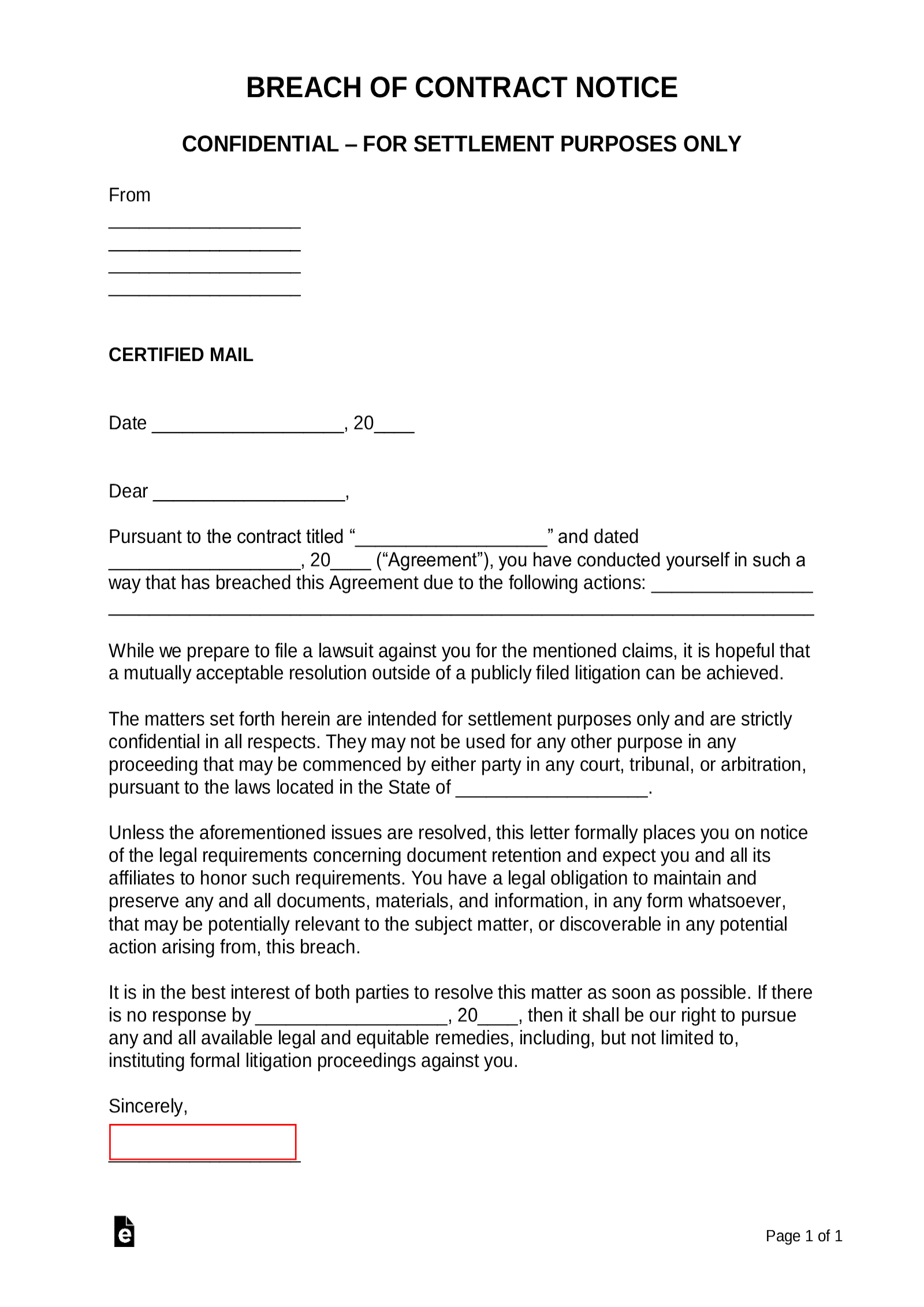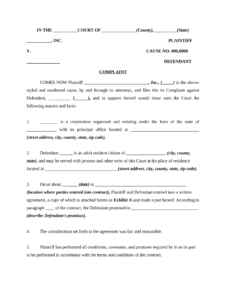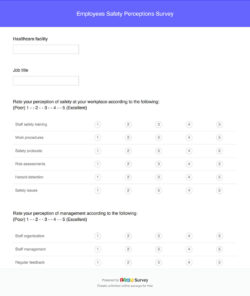Entering into any agreement, whether for business or personal ventures, comes with an inherent understanding that both parties will uphold their end of the bargain. However, in the real world, things don’t always go as planned. Sometimes, despite best intentions, one party might fail to fulfill their obligations, leading to a breach. This is where a well-crafted breach of contract clause becomes an indispensable tool, acting as your legal compass and safety net should an agreement go awry.
Understanding how to draft or utilize an effective breach of contract clause template can save you significant time, stress, and potential legal costs down the line. It provides a clear roadmap for what happens when a contract is broken, outlining the steps, remedies, and consequences. This guide will walk you through the essential elements and considerations, helping you navigate the complexities of contract enforcement with greater confidence.

Understanding the Core of a Breach of Contract Clause
At its heart, a breach of contract clause is a specific section within a larger agreement that defines what constitutes a failure to perform and outlines the remedies available to the non-breaching party. It serves as a preventative measure, encouraging compliance, and a reactive mechanism, dictating the course of action when a breach occurs. Without such a clause, resolving disputes can become a much more ambiguous and potentially expensive process, often leaving parties to rely solely on general contract law principles which might not align with their specific intentions or needs.
The primary purpose of incorporating such a clause is twofold: to clarify expectations and to provide a structured method for addressing non-compliance. By pre-determining the consequences and procedures, parties can avoid lengthy negotiations or litigation when a problem arises. This foresight can preserve business relationships, or at the very least, ensure a more orderly separation, protecting both financial interests and reputations.
A robust breach of contract clause typically covers several critical areas. It should clearly define what actions or inactions constitute a breach. This might include failure to deliver goods or services on time, non-payment, disclosure of confidential information, or non-adherence to specific performance standards. Clarity here is paramount, as vague definitions can lead to further disputes over whether a breach actually occurred.
Key Components to Include in Your Clause
When you’re working with a breach of contract clause template, you’ll notice certain elements are consistently present because they are fundamental to its effectiveness. One crucial component is the notification requirement. This section dictates how and when the non-breaching party must inform the breaching party of their failure to perform. Typically, it specifies a written notice delivered within a certain timeframe, ensuring clear communication and a verifiable record of the complaint.
Another vital part is the “cure period” or “opportunity to cure.” This provides the breaching party with a window of time to rectify their default after receiving notice. For example, if a payment is late, the clause might allow them 10 business days to make the payment before further action is taken. This mechanism can often resolve minor issues without escalating the situation, preserving the contract and the relationship between the parties. It promotes fairness and offers a chance for correction before more severe remedies are pursued.
Finally, and perhaps most critically, the clause will outline the remedies available. These can vary widely depending on the nature of the contract and the breach. Common remedies include monetary damages (compensating the injured party for losses incurred), specific performance (requiring the breaching party to fulfill their original obligations), or termination of the contract. Sometimes, clauses include liquidated damages, which are pre-agreed amounts of compensation for certain breaches, designed to avoid difficult calculations of actual loss later on.
Tailoring Your Breach of Contract Clause Template for Specific Needs
While a general breach of contract clause template provides an excellent starting point, it’s rarely a one-size-fits-all solution. Every contract, every business relationship, and every industry has its unique nuances that demand customization. Simply copying and pasting a generic clause might leave you exposed to risks that are specific to your situation or overlook protections that are crucial for your particular agreement. Think of the template as a robust skeleton; you need to add the muscle and skin that make it truly functional for your body of work.
The process of tailoring involves a careful consideration of various factors. What kind of goods or services are being exchanged? What are the potential risks if either party fails to perform? Are there specific milestones, deadlines, or quality standards that, if missed, would be particularly damaging? For instance, a software development contract might need very specific clauses regarding intellectual property rights and data security breaches, while a construction contract might focus more on project delays and material quality. Your clause should reflect these specific areas of vulnerability.
It is always a wise decision to seek legal counsel when customizing your breach of contract clause template. An experienced attorney can review your specific agreement, assess potential risks, and help you draft language that is legally sound, enforceable, and precisely tailored to your needs. They can also advise on the applicable laws in your jurisdiction, as contract law can vary significantly from one state or country to another, ensuring your clause holds up in a court of law if necessary.
When customizing, clarity and specificity are your best allies. Avoid ambiguous language that could be interpreted in multiple ways. Clearly define terms, processes, and consequences. Consider including a hierarchy of remedies, perhaps starting with a cure period, then mediation, followed by arbitration, and finally, litigation. This graduated approach can encourage resolution at the lowest possible level, saving time and resources for all parties involved.
Ultimately, a robust breach of contract clause is not just about penalizing a defaulting party; it’s about providing clarity, setting expectations, and offering a fair and predictable path forward when unforeseen issues arise. It strengthens the foundation of your agreements, giving all parties a clear understanding of their responsibilities and the mechanisms for recourse.
This proactive approach ensures that when challenges inevitably arise, you have a solid, well-thought-out plan already in place to guide you through, protecting your interests and fostering smoother business operations. Investing time in a meticulously crafted clause today can save you considerable headaches and expenses tomorrow.


